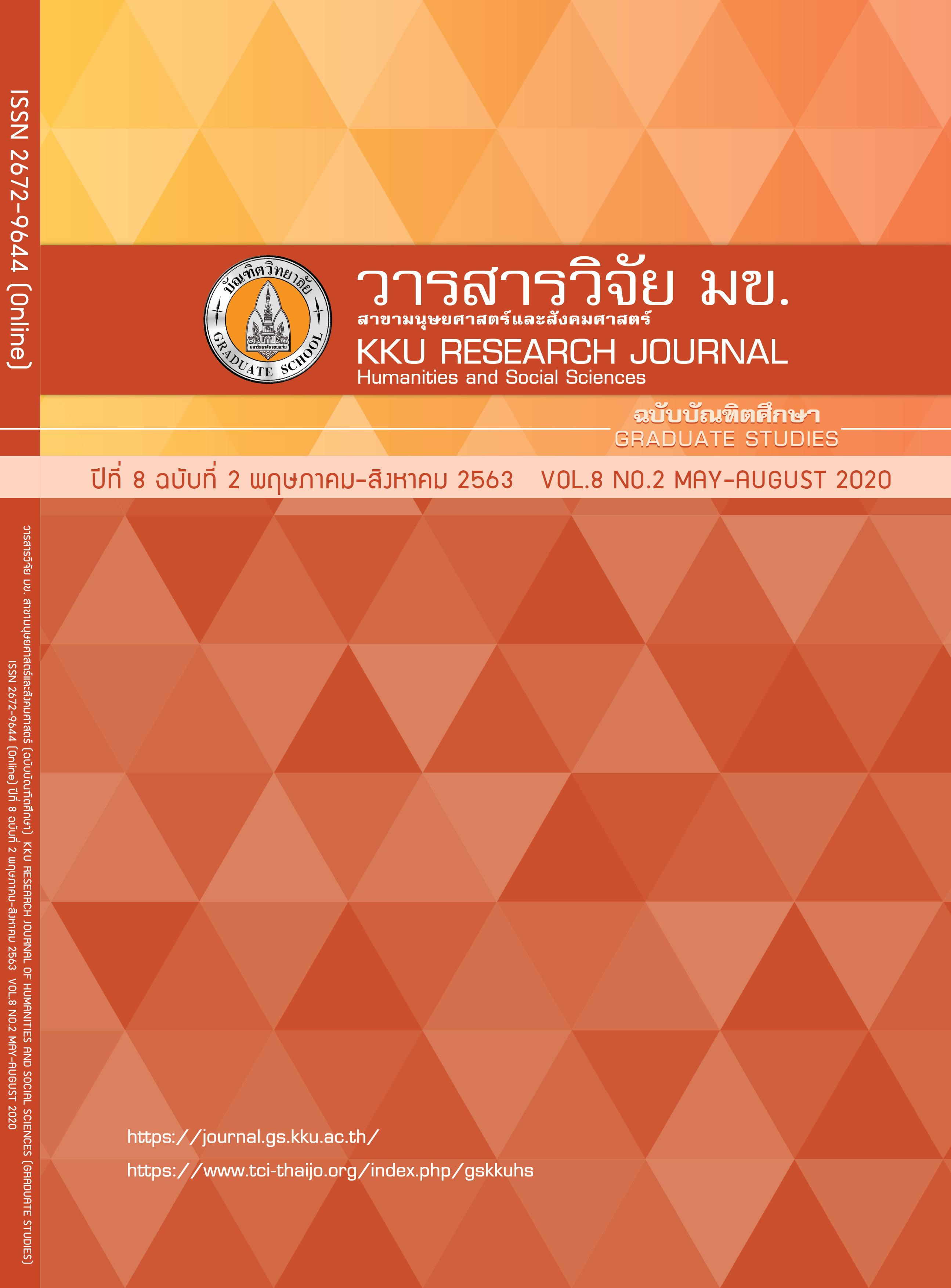Good Practices in Instruction of Secondary Education Teachers in Inclusive Schools: Multicase Studies
Keywords:
Inclusive school, Instruction, Multicase studyAbstract
The research aimed to study a status of good practices in instruction of secondary education teachers in 2 inclusive schools under the Secondary Educational Service Area Office 2, in 3 types of inclusive practice settings: general education classroom, resource room and special class in school. The research data were collected by observation, interview and document study. Data were analyzed by the method of content analysis. The research findings were as follows: special class; teachers delivered differentiated instruction based on goals in each student’s Individualized Educational Plan. In resource room, teachers delivered evidence-based instruction based on goals in each student’s IEP. In general education classroom, teachers used peer teaching, reinforced positive behaviors, and fostered the interaction and the acceptance between students with special needs and general students. However, teachers didn’t adapt contents because all students had to take the same test and they lacked the understanding of teaching students with special needs. Special education teachers played an important role in progress monitoring in order to refer the appropriate intervention service.
References
learning schools, Nonthaburi Province. FEU Academic Review.
2016; 10(2): 251-260. Thai.
2. Ramrit S. Effective inclusive model for secondary education
under Secondary Educational Service Area Office 4. Journal of
Education Research, Faculty of Education, Srinakharinwirot University.
2016; 10(1): 181-193. Thai.
3. Wut K. Problem and guides development in inclusive school for
Nogbonwittayakom school under the Secondary Educational Service
Area Office 17 [MEdu Thesis]. Chonburi: Burapha University; 2013. Thai.
4. Kudhom A. A study of the best practices of leading mainstreaming
schools according to the special education standards: a multicase study
research [MEd Thesis]. Bangkok: Chulalongkorn University; 2007. Thai.
5. Tantixalerm C. Response to intervention (RTI): principles, core
components, and practical implications for promoting inclusive education
practices in Thailand. Journal of Research Methodology. 2017; 30(2):
187-227. Thai.
6. Special Education Bureau. Number of students in school under
the Secondary Educational Service Area 2 report [Internet]. [
cited 2019 January 19]. Available From: http://specialbasic.specialset.
bopp.go.th/specialbasic/report_school_10_pdf.php?ireport=361_1t. Thai.
7. Special Education Bureau. Creating individualized education program:
IEP handbook. [Internet]. [cited 2019 January 19]. Available From: http://www.esbuy.net/_files_school/00000961/data/00000961_1_20180507-
155300.pdf. Thai.
8. Suriyakhamwong J, Jaingam, S. Guideline for the operation of
individualized education program in the inclusive pilot schools under
Sukhothai educational service area office. Journal of Faculty of Education
Pibulsongkram Rajabhat University. 2015; 2(2): 60-72. Thai.
9. Sangtongpitak S. Learning and teaching model for students with
learning disability of leading inclusive school: a case study of Nachuak
Pittayasan school [MEd Thesis]. Mahasarakham: Rajabhat Maha Sarakham
University; 2014. Thai.
10. Wong C, Odom SL, Hume KA, Cox AW, Fettig A, Kucharczyk S, et al.
Evidence-based practices for children, youth, and young adults with
autism spectrum disorder: a comprehensive review. Journal of Autism
and Developmental Disorders. 2015; 45: 1951–1966.
11. Salend S. Creating inclusive classrooms: effective and reflective
practices. Upper Saddle River: Pearson Merrill Prentice Hall; 2008.
12. Buli-Holmberg J, Jeyaprathaban S. Effective practice in inclusive
and special needs education. International Journal of Special Education.
2016; 31(1): 119-134.
13. Otukile-Mongwaketse M, Mangope B, Kuyini A. Teachers’ understandings
of curriculum adaptations for learners with learning difficulties in primary
schools in Botswana: issues and challenges of inclusive education. Journal
of Research in Special Educational Needs. 2016; 16(3): 169-177.




